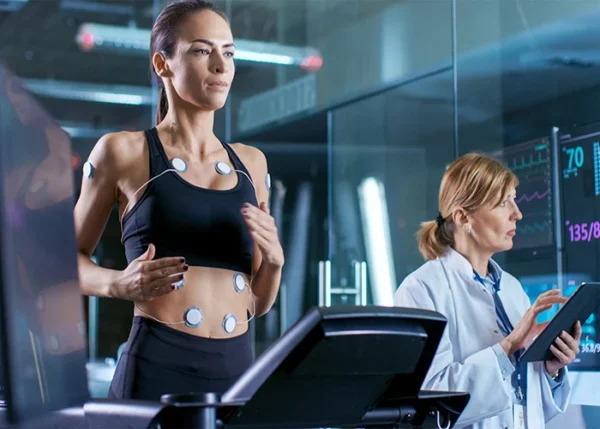
June, a month dedicated to unleashing the full potential of our brainpower and igniting awareness for Alzheimer’s disease. As we embark on this journey of enlightenment and advocacy, let’s explore how we can channel our collective energy to raise awareness, support research, and empower those affected by Alzheimer’s. Join us as we delve into actionable strategies to make a difference this Alzheimer’s Awareness Month.
Raising Awareness:
Awareness is the first step towards meaningful change. Spread the word about Alzheimer’s disease and its impact on individuals, families, and communities. Share informative resources, personal stories, and advocacy initiatives on social media platforms, in your local community, and among your networks. By raising awareness, we can shine a light on Alzheimer’s and inspire others to join the fight.
Supporting Research:
Research is the cornerstone of progress in the fight against Alzheimer’s. Get involved in fundraising events, volunteer opportunities, and advocacy campaigns to support organizations dedicated to Alzheimer’s research. Your contributions can fund groundbreaking studies, clinical trials, and innovative treatments that bring us closer to a world without Alzheimer’s.
Empowering Those Affected:
Alzheimer’s affects millions of individuals and their loved ones worldwide. Show your support by offering compassion, understanding, and practical assistance to those living with Alzheimer’s and their caregivers. Volunteer at local memory care facilities, participate in support groups, or simply lend a listening ear to someone in need. Your kindness and empathy can make a world of difference in the lives of those affected by Alzheimer’s.
Taking Action for Change:
Action speaks louder than words. Advocate for policy changes, increased funding for Alzheimer’s research, and improved access to care and support services. Write letters to lawmakers, participate in advocacy events, and engage with advocacy organizations to amplify your voice and drive meaningful change at local, national, and global levels.
As we ignite awareness for Alzheimer’s this June, let’s unleash the full power of our brainpower to make a difference. By raising awareness, supporting research, empowering those affected, and taking action for change, we can create a future where Alzheimer’s no longer robs individuals of their memories and dignity. Together, let’s stand united in the fight against Alzheimer’s and ignite a spark of hope for generations to come.
Thank you for taking this journey with us. Hopefully this has made you more aware of the necessity of good health. If you can make an impact throughout Alzheimer’s and Brain Awareness Month and Maximize Your Human Potential!

We are in the third week battling against Alzheimer’s and cognitive decline takes center stage. In this month dedicated to raising awareness, let’s explore how we can harness the power of mind over matter to combat these formidable adversaries. Join us as we dive into effective strategies to preserve cognitive function and champion brain health.
Navigating Alzheimer’s:
Alzheimer’s disease poses a significant challenge to individuals and communities worldwide. However, armed with knowledge and determination, we can navigate this journey with resilience. Explore treatment options such as cognitive enhancers and lifestyle interventions to manage symptoms and enhance quality of life. Additionally, participate in clinical trials to contribute to the advancement of Alzheimer’s research and potential breakthroughs.
Fueling Brain Resilience:
Just as a car needs fuel to run smoothly, our brains require nourishment to function optimally. Adopt a brain-healthy diet rich in nutrients like antioxidants, omega-3 fatty acids, and vitamins B and D. Incorporate foods such as fatty fish, leafy greens, nuts, and berries to support cognitive resilience and protect against age-related cognitive decline.
Empowering Early Detection:
Early detection is critical in the fight against Alzheimer’s and cognitive decline. Embrace the power of blood tests to identify biomarkers associated with brain health and cognitive function. Routine screenings for cholesterol, glucose, and inflammation levels can provide valuable insights and prompt proactive interventions to mitigate risk factors and promote brain resilience.
Insights from Genetic Profiling:
Genetic profiling offers personalized insights into individual susceptibility to Alzheimer’s disease and cognitive decline. By understanding genetic risk factors, individuals can implement targeted interventions to optimize brain health and reduce the likelihood of developing cognitive impairments. Explore lifestyle modifications, including regular exercise, stress management, and cognitive stimulation, to bolster brain resilience and support overall well-being.
Conclusion:
As we embark on June’s battle against Alzheimer’s and cognitive decline, let’s remember that mind over matter can be a powerful force for change. By navigating Alzheimer’s with resilience, fueling brain resilience with a nutrient-rich diet, empowering early detection through blood tests, and gaining insights from genetic profiling, we can tilt the odds in favor of cognitive vitality. Together, let’s embrace the challenge and pave the way for a future where cognitive health flourishes.
Stay tuned for our last actionable insights and tips throughout Alzheimer’s and Brain Awareness Month!
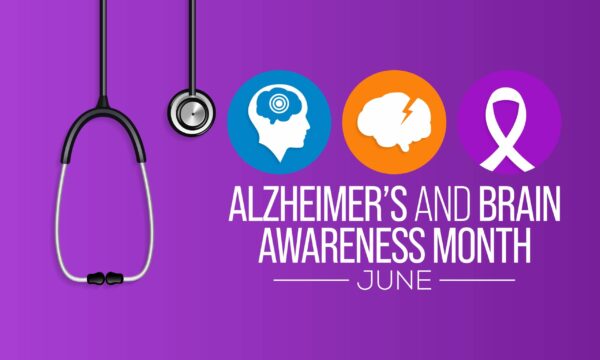
In the midst of June’s fervor for Alzheimer’s awareness, it’s time to recognize that memory matters. This month serves as a rallying cry to join the movement for brain health and take proactive steps to safeguard cognitive function. Let’s delve into practical strategies to champion brain health and honor the importance of memory in our lives.
Prioritizing Brain Health:
Maintaining brain health is crucial for preserving cognitive function and warding off conditions like Alzheimer’s disease. Engage in activities that stimulate the mind, such as puzzles, reading, and learning new skills. Physical exercise is also essential, as it enhances blood flow to the brain and promotes the growth of new brain cells. Make regular exercise a cornerstone of your routine to support long-term brain health.
Nutritional Support for the Brain:
Nutrition plays a pivotal role in brain health. Adopt a brain-boosting diet rich in fruits, vegetables, whole grains, and lean proteins. Incorporate foods high in antioxidants, such as berries, nuts, and leafy greens, to combat oxidative stress and protect brain cells from damage. Additionally, consider supplements like vitamin D and magnesium, which have been linked to improved cognitive function and mood regulation.
Harnessing the Power of Blood Tests:
Blood tests offer a window into our brain health, providing valuable insights for early detection and intervention. Routine blood screenings can assess cholesterol levels, blood sugar levels, and inflammatory markers, which impact brain health. Monitoring these biomarkers allows for timely intervention to mitigate risk factors and optimize brain function.
Insights from Genetic Testing:
Genetic testing empowers individuals to understand their unique risk factors for Alzheimer’s disease. By identifying genetic predispositions early on, individuals can implement personalized strategies to reduce risk and promote brain health. Embrace lifestyle modifications such as maintaining a healthy weight, managing stress, and prioritizing quality sleep to support overall well-being and cognitive vitality.
Conclusion:
As we navigate Alzheimer’s Awareness Month, let’s reaffirm that memory matters. By prioritizing brain health, embracing nutritional support, harnessing the power of blood tests, and gaining insights from genetic testing, we can champion cognitive vitality and honor the importance of memory in our lives. Together, let’s join the movement for brain health and pave the way for a brighter, more resilient future.
Stay tuned for more actionable insights and tips throughout Alzheimer’s and Brain Awareness Month!
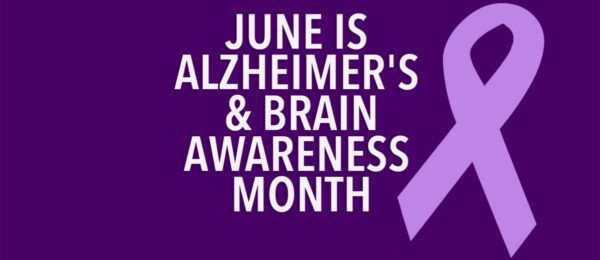
Welcome to June, the month dedicated to unlocking minds and fighting against Alzheimer’s and brain fog. As we delve into this crucial awareness campaign, let’s explore effective strategies to combat Alzheimer’s, enhance brain health, and reclaim our cognitive vitality.
Tackling Alzheimer’s:
Alzheimer’s disease poses a significant challenge to individuals and families worldwide. However, advancements in treatments offer hope. From pharmaceutical interventions to lifestyle modifications, there’s a range of approaches to explore. Consult with healthcare professionals to explore options like acetylcholinesterase inhibitors or memantine, which can help manage symptoms and slow disease progression.
Harnessing the Power of Vitamins:
Vitamins play a crucial role in brain health. Incorporating nutrient-rich foods and supplements can provide essential support. Vitamin E, for instance, acts as an antioxidant, protecting brain cells from damage. Omega-3 fatty acids, found in fish oil supplements, promote brain function and may reduce the risk of cognitive decline. Ensure you’re getting an adequate intake of vitamins B6, B12, and folate, as deficiencies have been linked to cognitive impairment.
Blood Tests for Early Detection:
Early detection of Alzheimer’s is key to effective management. Blood tests are emerging as promising tools for diagnosing Alzheimer’s disease, offering a non-invasive and cost-effective alternative to traditional methods. Biomarkers such as amyloid beta and tau proteins can indicate the presence of Alzheimer’s pathology years before symptoms manifest. Speak with your healthcare provider about incorporating these tests into your wellness routine for proactive monitoring.
Unlocking Genetic Insights:
Genetic predisposition plays a role in Alzheimer’s risk. DNA tests, such as genetic screening for the APOE ε4 allele, can provide valuable insights into individual susceptibility. While genetic factors influence Alzheimer’s risk, they don’t determine destiny. Armed with this knowledge, individuals can adopt lifestyle measures to mitigate risk factors and promote brain health.
This June, let’s unite in the fight against Alzheimer’s and brain fog. By embracing treatments, optimizing vitamin intake, leveraging blood tests for early detection, and unlocking genetic insights, we can empower ourselves in the battle for cognitive vitality. Together, we can unlock minds and pave the way for a brighter, brain-healthy future.
Stay tuned for more insights and actionable tips throughout Alzheimer’s and Brain Awareness Month!
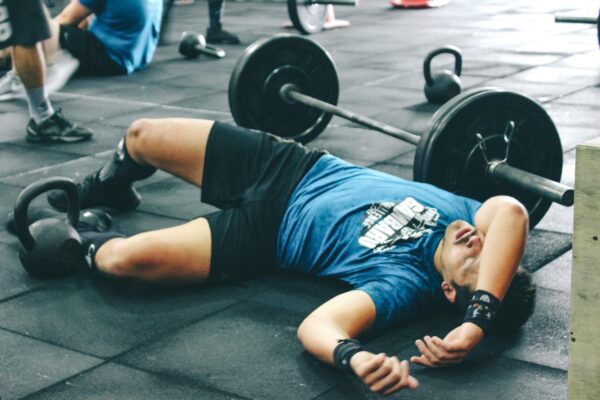
In the ever-evolving landscape of fitness, the pursuit of a healthier lifestyle has transcended the traditional realms of intense workouts. This blog delves into the transformative journey of the fitness industry, highlighting the growing importance of recovery and wellness services. Beyond the sweat-drenched workouts, a new era is emerging—one that embraces a holistic approach to well-being.
Rethinking Fitness: A Holistic Perspective
Gone are the days when fitness was synonymous with grueling workouts and sweat-soaked gym sessions. The evolving mindset of fitness enthusiasts is steering towards a holistic perspective that encompasses physical, mental, and emotional well-being. The realization that recovery is not just a post-workout necessity but a fundamental aspect of a healthy lifestyle is reshaping the fitness narrative.
The Role of Recovery in Performance Enhancement
While challenging workouts remain crucial for physical fitness, the focus is shifting towards what happens after the sweat session. Recovery is now recognized as a key element in performance enhancement. Athletes and fitness enthusiasts are exploring innovative recovery techniques to optimize their training results, reduce the risk of injuries, and promote long-term sustainability in their fitness journeys.
Personalized Recovery Plans
As the understanding of individual variability in recovery needs grows, the fitness industry is moving towards personalized recovery plans. Tailoring recovery strategies to individual preferences, body types, and fitness goals ensures a more targeted and effective approach. From customized recovery nutrition plans to specific recovery modalities, the emphasis is on providing personalized solutions for each individual.
Integration of Technology in Recovery
Technology is playing a significant role in revolutionizing the recovery aspect of fitness. Wearable devices, fitness apps, and smart recovery tools are empowering individuals to track their recovery progress, monitor vital indicators, and make informed decisions about their wellness routines. This integration of technology fosters a more data-driven and efficient approach to recovery.
Recovery Beyond Physical: Mental and Emotional Well-being
The evolution of fitness now acknowledges that well-being goes beyond physical health. Mental and emotional well-being are gaining prominence as essential components of a holistic fitness journey. Practices such as meditation, mindfulness, and stress management are becoming integral to recovery routines, promoting a balanced and resilient mindset.
Holistic Wellness Centers: A Hub for Comprehensive Well-being
The rise of holistic wellness centers signifies a shift from traditional gyms to comprehensive well-being hubs. These centers offer a spectrum of services, including recovery modalities, fitness classes, mental health resources, and nutritional guidance. They provide a one-stop destination for individuals seeking a well-rounded approach to their health and fitness.
Community and Support in Holistic Fitness
The evolving fitness landscape is fostering a sense of community and support. Whether through fitness classes, online forums, or social media groups, individuals are connecting to share their experiences, challenges, and triumphs in their holistic fitness journeys. This sense of community serves as a motivational force, encouraging individuals to prioritize their well-being in a supportive environment.
Paradigms and Transcendents
The evolution of fitness is a dynamic journey that transcends the limitations of traditional workout paradigms. Embracing recovery and wellness services as integral components of a holistic fitness approach paves the way for a more sustainable and fulfilling health journey. Beyond the sweat, fitness enthusiasts are discovering the transformative power of recovery, not just for physical performance but for fostering a balanced and thriving life. The future of fitness is one that goes beyond the gym floor, incorporating recovery and wellness as pillars of a comprehensive and holistic well-being strategy.
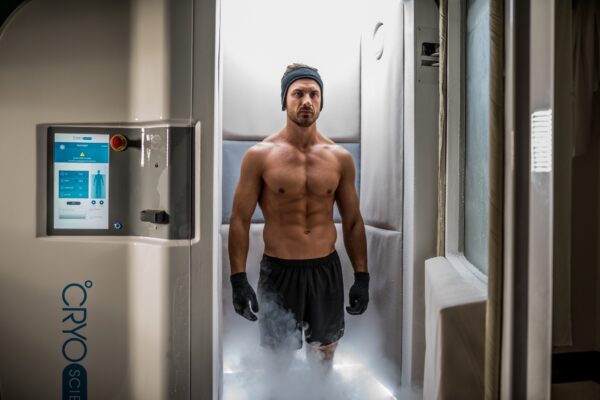
In the ever-evolving landscape of fitness, a significant shift has occurred as people increasingly recognize the profound impact of recovery and wellness on their overall well-being. This paradigm shift is not only transforming individual health practices but is also reshaping the very fabric of the fitness industry. From high-intensity workouts to recovery and rejuvenation, the holistic approach to fitness is gaining momentum, with gyms and fitness studios leading the charge.
Understanding the Importance of Recovery
Beyond the intensity of workouts, recovery has emerged as a crucial component of a well-rounded fitness routine. Recognizing the need for balance, individuals are prioritizing recovery to enhance performance, prevent injuries, and promote overall health. This awareness has sparked a revolution in the fitness industry, where recovery is not merely an afterthought but an integral part of the fitness journey.
Diversification of Fitness Services
Gone are the days when fitness centers solely focused on strenuous workouts. The current trend sees gyms and studios diversifying their offerings to include an array of recovery and wellness services. These services go beyond the conventional, embracing innovative approaches like cryotherapy, infrared saunas, and massage therapy to address both physical and mental recovery.
Cryotherapy: Chilling for Healing
Cryotherapy, the practice of exposing the body to extremely cold temperatures for short periods, has gained popularity for its potential benefits in reducing inflammation, relieving muscle soreness, and even boosting metabolism. Fitness enthusiasts are turning to cryotherapy chambers as a cutting-edge method to expedite recovery and optimize their performance.
Infrared Saunas: The Warmth of Well-Being
Infrared saunas, with their gentle heat penetrating the body, have become a favored choice for recovery. Beyond relaxation, these saunas are believed to promote detoxification, improve circulation, and alleviate muscle tension. The embrace of infrared saunas in fitness studios reflects a commitment to holistic well-being.
Massage Therapy: Healing Hands for Holistic Health
Massage therapy, a timeless practice, has found a new home in fitness centers. Beyond being a luxurious indulgence, massages are recognized for their therapeutic benefits, promoting muscle recovery, reducing stress, and enhancing flexibility. The integration of massage therapy into fitness services is a testament to the industry’s dedication to comprehensive wellness.
The Future of Fitness
As recovery and wellness services continue to weave themselves into the fabric of the fitness industry, we witness the emergence of a more comprehensive and holistic approach to health. The future of fitness lies not only in the intensity of workouts but in the thoughtful integration of recovery practices that nurture the body, mind, and spirit.
In this transformative era, where recovery is no longer a luxury but a necessity, fitness enthusiasts are not just sculpting their bodies—they’re cultivating a lifestyle of holistic well-being. The gyms and fitness studios of today are not just spaces for sweat and exertion; they are sanctuaries for recovery, rejuvenation, and the pursuit of optimal health. Embrace the revolution—where fitness is not a race but a journey towards holistic vitality.

As we peer into the not-so-distant future, the concept of fitness in the metaverse emerges as a fascinating, albeit perplexing, phenomenon. Are virtual and augmented reality (VR and AR) workouts truly the next frontier of fitness, or is this just another passing trend? The assertions about their growth in popularity in 2024 beg the question: can these immersive experiences genuinely redefine the way we approach exercise?
Immersive Fitness: A Game-Changer or a Gimmick?
The promise of a unique and immersive fitness experience is undoubtedly intriguing. The thought of donning VR headsets or engaging in AR-enhanced workouts brings a sense of novelty to the fitness realm. But, one might wonder, does the immersion translate to efficacy? Can these experiences genuinely rival the tangible benefits of traditional workouts, or are they more of a gimmick that appeals to our collective fascination with cutting-edge technology?
Accessibility for All: A True Game-Changer?
The assertion that VR and AR workouts can be accessible for people with disabilities or mobility issues raises essential questions about inclusivity in the fitness landscape. While the idea of breaking down physical barriers is commendable, one might ponder: do these technologies truly cater to the diverse needs of individuals with varying abilities? How seamless is the integration, and does it genuinely provide an inclusive fitness experience for everyone?
The Future: A Technological Triumph or Ethereal Experiment?
2024 is painted as the year when VR and AR workouts will thrive. Yet, we can’t help but question the long-term implications. Is this a lasting shift in the fitness paradigm, or are we witnessing an ethereal experiment that will fade away as swiftly as it appeared? Can virtual fitness truly replace the tangible connections forged in physical spaces like gyms and studios, or is it a supplement rather than a substitution?
In the metaverse, where the lines between reality and virtuality blur, the future of fitness appears to be both thrilling and enigmatic. As we navigate this uncharted territory, let’s question, explore, and critically assess whether the immersive promise of VR and AR workouts is a transformative leap into a new era of fitness or a fleeting mirage in the evolving landscape of wellness. Is this the dawn of a revolutionary fitness experience, or are we merely playing a captivating game within the metaverse? Only time will reveal the answers, and until then, let the questioning continue.

As we stride into the future, one trend that’s not just making waves but becoming an integral part of our daily lives is wearable technology. The popularity of fitness trackers and smartwatches is set to soar even higher in 2024, becoming indispensable tools for those keen on optimizing their well-being.
Smart Fitness Tracking
Wearable technology serves as a personalized wellness companion, allowing individuals to effortlessly monitor their fitness journey. From step counts to heart rate monitoring, these devices offer real-time insights into physical activity, empowering users to make informed decisions about their health.
Motivation at Your Fingertips
What sets wearable tech apart is its ability to keep users motivated. Whether it’s reaching daily step goals, beating a personal best, or receiving real-time workout feedback, these devices provide the encouragement needed to stay on track and achieve fitness milestones.
Healthy Habits, Intelligent Living
Beyond mere fitness tracking, wearable technology champions a lifestyle of intelligent living and healthy choices. These devices have evolved to encompass a holistic approach to well-being, seamlessly integrating into our daily routines and promoting healthier decisions.
Optimized Humans Fitness App Integration
In this era of tech-driven wellness, the Optimized Humans Fitness App takes the concept of intelligent living a step further. Seamlessly syncing with popular wearable devices, the app harnesses the power of fitness tracking technology to provide users with a comprehensive overview of their well-being journey. Real-time data from wearables seamlessly integrates into personalized workout plans, enabling users to set and achieve fitness goals with precision.
From step counts recorded by your favorite fitness tracker to heart rate data from your smartwatch, the Optimized Humans Fitness App transforms raw metrics into actionable insights. It’s not just a fitness app; it’s a digital wellness companion that applies the latest in wearable technology to empower users on their journey to optimal health. Embrace intelligent living and a tech-infused wellness experience with the Optimized Humans Fitness App—where the power of wearables converges with personalized fitness for a holistic approach to well-being.
In a world driven by innovation and a relentless pursuit of optimal well-being, the concept of biohacking is steadily making its way into the mainstream. Once confined to the realms of Silicon Valley and scientific laboratories, biohacking is now emerging as a household term, poised to redefine how we approach health and performance.
Biohacking, at its core, is the art and science of optimizing one’s biology for peak performance. It encompasses a diverse range of practices, from personalized nutrition and sleep optimization to wearable technology and genetic testing. As we navigate the ever-evolving landscape of wellness, the gradual integration of biohacking into mainstream consciousness prompts us to consider: Are we on the brink of a paradigm shift in how we view and manage our health?
The allure of biohacking lies in its individualized approach, acknowledging that each person’s biology is unique. As more people recognize the potential to unlock their full potential through tailored interventions, biohacking transcends its niche origins, becoming a catalyst for a broader movement towards proactive health optimization.
In 2024, biohacking isn’t just a buzzword; it’s a transformative force shaping the future of personalized well-being, where the intersection of science and everyday life empowers individuals to become architects of their own vitality.
In a world where the pursuit of well-being often revolves around numbers—reps, sets, calories burned—it’s time to redefine our understanding of fitness. Welcome to the era where fitness transcends the mundane and transforms into an immersive experience. This blog explores the paradigm shift towards viewing fitness not just as a routine but as a journey—a holistic, sensorial, and deeply personal experience that goes beyond the confines of the gym.
The Evolution of Fitness: From Routine to Ritual
Gone are the days when fitness was a mere checklist of exercises. The contemporary approach embraces fitness as a ritual—a purposeful and dynamic experience that extends beyond the walls of a gym. It’s about intentional movement, mindful choices, and the integration of well-being into the fabric of daily life.
Mindfulness in Motion: The Present Moment Workout
The concept of mindfulness is seeping into every aspect of our lives, and fitness is no exception. The present moment workout is about immersing oneself fully into the exercise—feeling the muscles engage, savoring each breath, and relishing the rhythm of movement. In this experience-driven fitness journey, mindfulness becomes the guiding force, fostering a deeper connection between the mind and body.
Bridging Fitness and Fun: The Playful Workout
The rise of experiential fitness brings an element of playfulness to the workout routine. From dance-inspired classes to obstacle course challenges, fitness becomes an adventure—an opportunity to play, explore, and rediscover the joy of movement. This shift acknowledges that exercise doesn’t have to be a chore; it can be an exhilarating and enjoyable experience.
The Sensorial Gym Experience: Engaging the Senses
Experiential fitness engages all the senses, creating a sensorial symphony that elevates the workout experience. Whether it’s the aroma of essential oils in a yoga studio, the rhythmic beats of a curated playlist, or the tactile sensation of outdoor trail running, fitness becomes a multisensory journey that enlivens the spirit.
Community Connection: Social Fitness Experiences
Fitness is no longer a solitary pursuit; it’s a communal experience. The emergence of group workouts, fitness events, and online communities fosters a sense of connection and shared purpose. The social aspect of fitness becomes a driving force, transforming it from an individual endeavor into a collective journey.
The Wellness Fusion: Blurring Boundaries
Experiential fitness blurs the boundaries between traditional wellness practices. It’s not just about lifting weights or running miles; it’s about embracing a holistic approach that includes yoga, meditation, and nutritional mindfulness. The fusion of wellness practices creates a comprehensive and integrated experience that nurtures the body, mind, and soul.
Embarking on Your Fitness Odyssey
As we embrace the concept of fitness as an experience, it’s an invitation to embark on a personal odyssey—one that transcends the rigid confines of routine and embraces the dynamic, the mindful, and the joyful. Whether you find solace in the rhythmic flow of a dance class, the serenity of a yoga session, or the camaraderie of a group workout, remember that your fitness journey is uniquely yours. It’s a celebration of movement, an exploration of self, and a holistic experience that extends far beyond the parameters of sets and reps. So, lace up your sneakers, embrace the sensory richness of your workout, and let fitness become a transformative and joyous journey.
